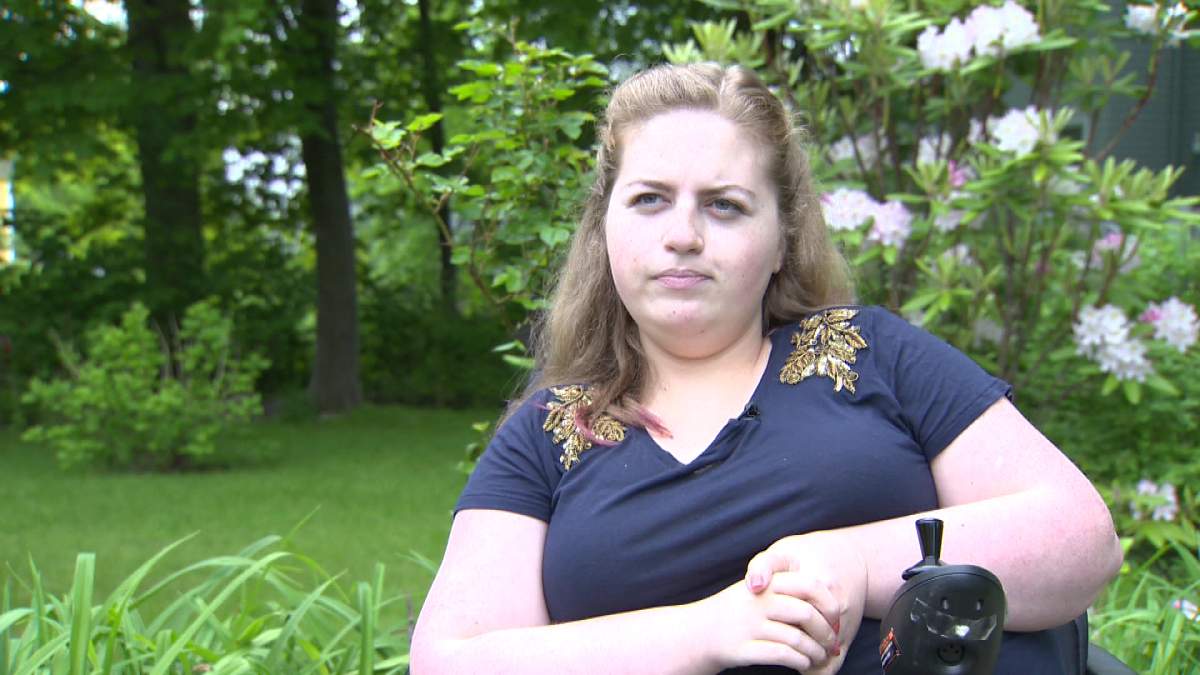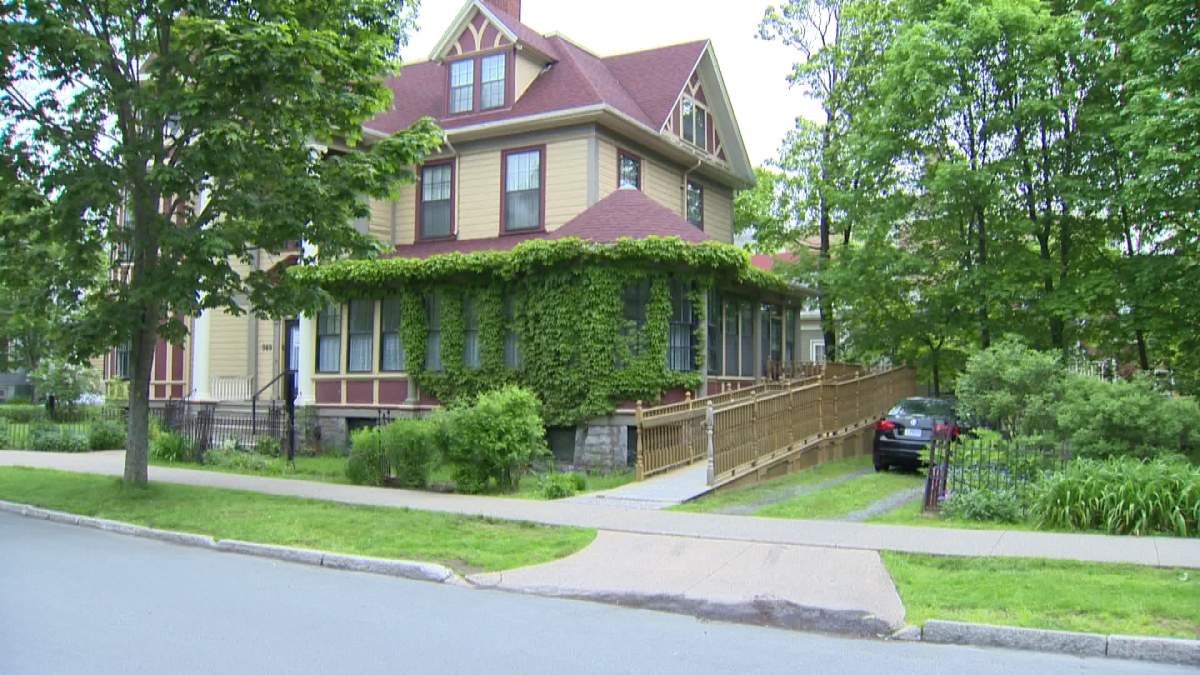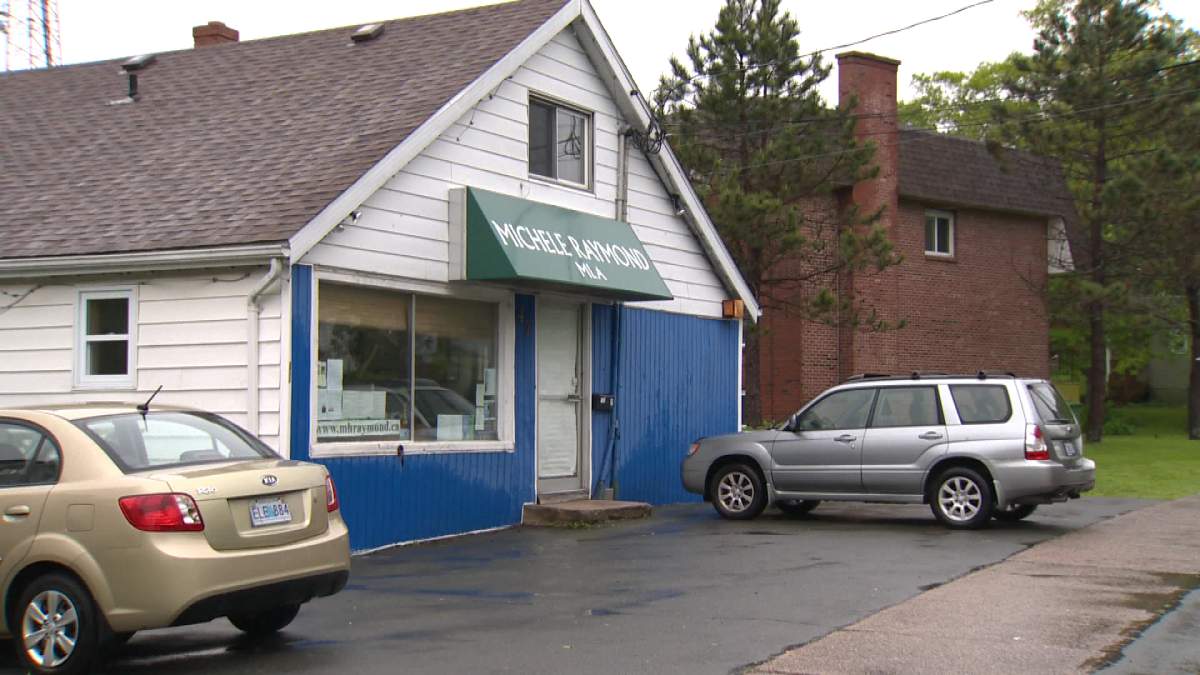HALIFAX – Kelly McKenna, 21, was born with a physical disability that confines her to a wheelchair. But she does not want that to stop her from accessing her local MLA.

Unfortunately not all constituency offices in the province accommodate those with disabilities.
A survey conducted by the James McGregor Stewart Society, and which McKenna was a researcher, looked at all MLA offices across Nova Scotia and whether they are wheelchair accessible.
It finds some offices meet the standards and needs of those with physical disabilities but that was not the case for all of them.
To check out the survey and see how your MLA fared, click here: http://jmcgs.blogspot.ca/2013/06/constituency-office-survey.html
The survey scored MLA offices on four factors: up to two points were given for paved and wheelchair designated parking spots, up to one point was given for an automatic door button, up to one point was given for a level entrance or a ramp and up to two points were given for washrooms that were large enough and accessible through grab bars or a wheelchair appropriate sink.
McKenna says it is often frustrating that MLA offices are not accessible to all people.
“These are all things that come together to make someone in a wheelchair have more independence in their daily life,” she said.
Kevin Murphy, co-founder of the James McGregor Stewart Society, says the purpose of the survey is to instigate change at MLA offices across the province.
“Our initiatives…is to increase the physical accessibility of Nova Scotian’s elected representatives and by a larger measure, increase the access to democracy,” he said.
In the survey, McKenna’s local MLA, Halifax Citadel-Sable Island MLA Leonard Preyra’s office in the South End of Halifax scored two out of six points.
The office has a ramp but it does not have wheelchair accessible parking, an automatic door button or a wheelchair accommodating washroom. Preyra acknowledges that upgrades need to be made.
“There’s no question about it. We need to make it more accessible,” he said. Preyra notes that while his office has a heritage designation that might deter renovations, he supports widening the current tight washroom and creating an electronic door.

Get breaking National news
Other MLAs, like Halifax Atlantic’s Michele Raymond, defend their offices.
Raymond’s Armdale office scored one out of six because it does not have wheelchair accessible parking, an automatic door button, a wheelchair accessible washroom or a ramp to the entrance.
Raymond says her constituents don’t tend to come to her office.
“I can be found anywhere. I do my work in the grocery store. I do my work walking. I do my work wherever. I would not say an MLA’s office is necessarily their office,” she said.
Regardless, Murphy wants MLAs to upgrade their offices to make them all accessible and if they don’t, he wants to see some consequences.
“What we suggest is the simple rule that would see their constituency allowance be withheld until they meet this simple minimum standard,” Murphy said.
Currently the MLA handbook says MLAs should and if possible find an appropriate space that is physically accessible, however there are no concrete rules about accessibility. There are also no consequences for failing to meet accessibility standards like those outlined in the Nova Scotia Building Code.
Gordie Gosse, speaker of the House, tells Global News that he is pushing the issue forward.
The desire to create change has McKenna optimistic about the future.
“I can certainly see a huge problem with this. Change needs to happen so later in my life, I won’t have to deal with frustrating things like this,” McKenna said.
The James McGregor Stewart Society is working with the House of Assembly Management Committee to create a plan of action. Gosse adds that his staff have also been meeting with the Transportation Infrastructure Renewal Committee.
While there is no timeline on upgrading MLA offices, Gosse wants to see the changes as quickly as possible and ideally before the next provincial election. Murphy meanwhile believes the election could be the catalyst for change and says new MLAs should meet the new standards of accessible offices while existing MLAs should have a grace period to renovate their offices.










Comments